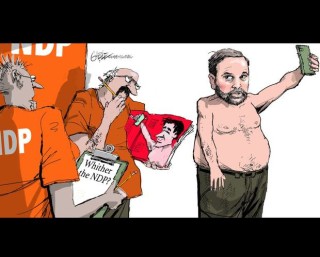U.S. President Barack Obama huddled with senior military commanders from more than 20 countries – including Canada – on Tuesday in a war council intended to divvy up roles in the still unnamed fight against the Islamic State.
Mr. Obama cautioned against expecting an early victory, saying the war “is going to be a long-term campaign” with “periods of progress and setbacks.”
The U.S.-led war against the Islamic State is, so far, an unwieldy coalition of mostly Western countries, along with a handful of Arab states, united only by a vague objective to roll back the nascent caliphate carved out of Syria and Iraq by radical Sunni jihadis.
Cobbling together a three-dimensional air war, with pilots and planes of varying skills and capabilities, poses military and political challenges. Each member of the U.S.-led coalition is constrained by differing domestic considerations.
Some countries – Canada among them – won’t bomb Islamic State targets unless they are in Iraq. Others, especially non-NATO countries, must be integrated into a U.S. command-and-control structure.
And some are offering bases, support or humanitarian assistance but want no combat role.
While U.S. warplanes have conducted the lion’s share of the attacks over the past month, integrating fighter-bombers, spy planes and aerial refuellers from other countries adds risks as well as resources.
For instance, all pilots must be fully familiar with the crucial procedures if they are shot down, or need to eject because of mechanical failure, over Islamic State territory. The U.S. has a rapid-reaction search-and-rescue contingent capable of finding a downed pilot, but with beheading, rather than imprisonment, being the likely fate of any allied pilots captured by the Islamic State, getting the procedures hammered out is vital.
Canada’s Chief of Defence Staff, General Tom Lawson, a former fighter-bomber pilot, was among nearly two dozen senior military officers at the day-long session at Andrews, the sprawling base outside Washington where Mr. Obama plays golf most weekends.
The President spoke to the assembled commanders only hours after U.S. warplanes pounded Kobani in the heaviest onslaught yet on the predominantly Kurdish city under siege from the Islamic State in northern Syria.
He said defeating the Islamic State needed more than a military campaign. “What we’re also fighting is an ideological strain of extremism,” he said, adding that the coalition needed to offer development and opportunities as an “alternative vision to those attracted” to the ideology of the Islamic State.
Canada’s six-pack of aging CF-18 warplanes will join the U.S.-led air war flying missions from Kuwait later this month – 23 years after they were in action in Iraq as part of the 1991 Gulf War. Since then, Canadian warplanes were deployed in 1999 to bomb Serbia in the Kosovo air war and again in 2011 to attack forces loyal to Libya’s Colonel Moammar Gadhafi. Both were NATO operations and the Libyan war also was mandated by the United Nations Security Council.
The still-unnamed war is being run out of Tampa, where U.S. Central Command is headquartered at MacDill Air Force Base.
The Pentagon says it may announce a name by Wednesday – although it seems unlikely to opt for another high-minded label such as Operation Enduring Freedom, which is the tag for the war in Afghanistan.
Canada has already picked its moniker – Operation Impact – even before the CF-18s drop their first bombs on the jihadis who have ignited international revulsion with their brutal tactics.
Meanwhile, U.S. warplanes, flying from the nuclear-powered aircraft carrier USS George H.W. Bush in the Persian Gulf and air bases in the region, stepped up attacks on Islamic State positions encircling the embattled border city of Kobani, only a few kilometres from the Turkish border.
“Airstrikes near Kobani destroyed two [IS] staging locations and damaged another, destroyed one [IS] building and damaged two others, damaged three [IS] compounds, destroyed one [IS] truck, destroyed one [IS] armed vehicle and one other [IS] vehicle,” the Pentagon announced.
The list underscored the paucity of targets, with warplanes flying thousands of kilometres and refuelling several times during a mission, often to strike a single vehicle.
As to whether the intensive strikes near Kobani can save the city, even senior U.S. commanders have publicly voiced doubts.
“I am fearful that Kobani will fall,” said General Martin Dempsey, the chairman of the U.S. Joint Chiefs of Staff, who chaired Tuesday’s conclave. He said the Islamic State has adapted to the attacks by becoming more circumspect. “They don’t fly flags and move around in large convoys the way they did. … They don’t establish headquarters that are visible or identifiable.”
But in the absence of ground forces to retake and hold the sprawling swath of territory currently held by the Islamic State, the effectiveness of an air war remains in doubt.
Earlier this week, U.S. Army Secretary John McHugh reiterated the need for boots on the ground. “As important as they are, no Hellfire-equipped drone ever reclaimed lost territory,” he said. “No Tomahawk missile ever conducted a ground counteroffensive. No bomber ever mentored or trained soldiers.”
But Mr. Obama, who came to power vowing to end the Iraq war, has flatly ruled out using U.S. combat troops, saying only air power and Special Forces limited to functioning as advisers will conduct the war against the Islamic State.
PAUL KORING
WASHINGTON — The Globe and Mail
Published Tuesday, Oct. 14 2014, 8:22 PM EDT
Last updated Tuesday, Oct. 14 2014, 9:51 PM EDT

